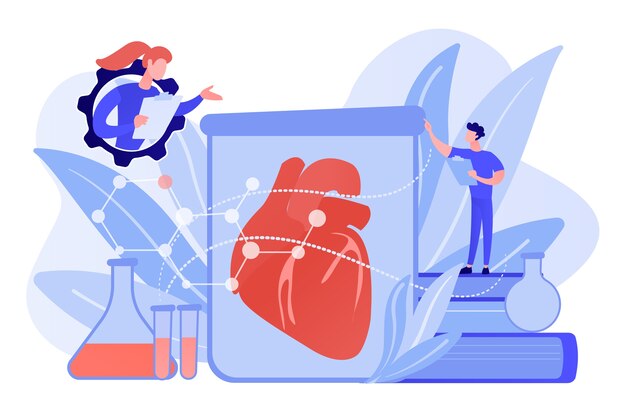Cardiology is a specialized branch of medicine that deals with the diagnosis, treatment, and prevention of diseases related to the heart and blood vessels. Cardiologists are medical professionals who are trained in the field of cardiology and play a crucial role in managing cardiovascular health. In this article, we will explore the fascinating world of cardiology, the responsibilities of cardiologists, and the importance of cardiovascular health.
What is Cardiology?
Cardiology is a branch of medicine that focuses on the study, diagnosis, and treatment of diseases and conditions that affect the heart and blood vessels. It encompasses a wide range of conditions, including coronary artery disease, heart failure, arrhythmias, congenital heart defects, and valvular heart disease. The field of cardiology has evolved significantly over the years, with advancements in technology and treatment options.
The Role of a Cardiologist
Cardiologists are specialized physicians who have undergone extensive training in the field of cardiology. They are experts in diagnosing and managing various heart-related conditions. The responsibilities of a cardiologist include:
- Diagnosis: Cardiologists use various diagnostic tools and tests to assess a patient’s cardiovascular health. These may include electrocardiograms (ECG/EKG), echocardiograms, stress tests, cardiac catheterization, and imaging techniques such as MRI and CT scans.
- Treatment: Once a diagnosis is made, cardiologists develop personalized treatment plans for their patients. This may involve lifestyle modifications, medications, cardiac rehabilitation, and, in some cases, surgical interventions such as angioplasty or bypass surgery.
- Prevention: Cardiologists play a vital role in preventive cardiology. They help individuals identify and manage risk factors for cardiovascular disease, such as high blood pressure, high cholesterol, obesity, diabetes, and smoking. Through education and guidance, they empower patients to make lifestyle changes that promote heart health.
- Follow-up Care: Cardiologists provide ongoing care and monitoring to patients with heart conditions. Regular check-ups, medication adjustments, and the management of any potential complications are all part of a cardiologist’s role in ensuring optimal cardiovascular health.
The Importance of Cardiology
Cardiovascular diseases, including heart disease and stroke, are among the leading causes of death globally. The field of cardiology plays a vital role in reducing the burden of these diseases by providing early detection, effective treatment, and preventive care. Here are some key reasons why cardiology is of utmost importance:
- Early Detection: Cardiologists are skilled at identifying early signs and symptoms of heart disease. Through routine screenings and diagnostic tests, they can detect potential issues before they escalate, allowing for timely intervention.
- Advanced Treatment: With advancements in medical technology and research, cardiologists can offer a wide range of treatment options. From medication management to minimally invasive procedures and complex surgeries, cardiology provides effective solutions for various heart conditions.
- Lifestyle Modification: Cardiologists emphasize the importance of a healthy lifestyle in preventing and managing heart disease. They educate patients on the significance of regular exercise, a balanced diet, stress management, and smoking cessation, enabling individuals to take control of their heart health.
- Multidisciplinary Collaboration: Cardiologists work closely with other healthcare professionals, including primary care physicians, surgeons, nurses, and rehabilitation specialists. This collaborative approach ensures comprehensive care and optimal outcomes for patients.
Conclusion
In conclusion, cardiology is a crucial medical specialty dedicated to the diagnosis, treatment, and prevention of heart and vascular diseases. Cardiologists play a significant role in safeguarding cardiovascular health through early detection, personalized treatment plans, and preventive care. By embracing a healthy lifestyle and seeking timely medical attention, individuals can promote their heart health and reduce the risk of cardiovascular diseases.




